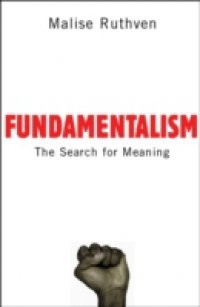Since the end of the Cold War fundamentalism has been seen as the major threat to world peace and prosperity, a concern that was exacerbated by the events of 9/11, and the 'War against Terrorism'. But what does 'fundamentalism' really mean? Since it was coined by American Protestant evangelicals in the 1920s, the word has expanded its meaning to include radical conservatives or ideological purists in many spheres of activity, not all of them religious. Modern applications of fundamentalism include Islamist radicals in the Muslim world, the militant Israeli settlers who oppose them as well as Sikh, Hindu and even Buddhist nationalists who seek to justify their political agendas byreference to divine edicts or religious tradition. This exciting new book tackles the polemic and stereotypes surrounding this fascinating subject.

